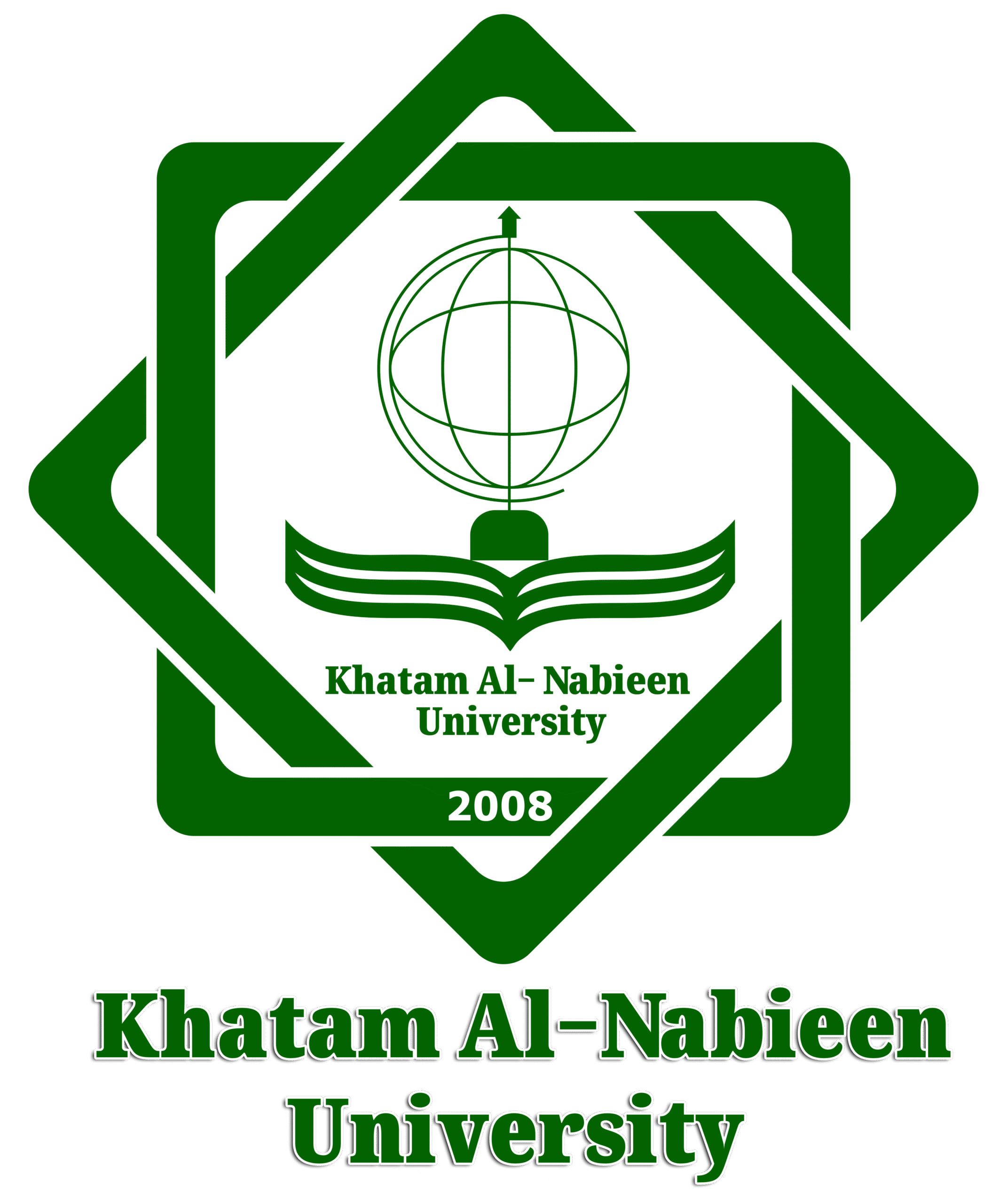Directorate of Quality Enhancement and Planning

Mr. Sayed Mohammad Sharif Shaker
Educational Background:
- Bachelor’s in Mathematics, Kabul University, year of admission, year of graduation;
- Diploma in Financial Management, India;
- Master’s in Mathematics, University of Pune, India, year of admission, year of graduation;
- Completion of management courses (RIMO), Ministry of Education, Kabul.
Academic and Executive Background:
- Director of Quality Enhancement and Planning, Khatam Al-Nabieen University, Spring 2024 to present;
- Director of Quality Enhancement and Planning, Khatam Al-Nabieen University, 2018 to 2022;
- Dean of the Faculty of Computer Science, Khatam Al-Nabieen University, 2016 to 2018;
- Head of the Software Engineering Department, 2018 to 2019;
- Administrative-Financial Deputy, Khwaja Abdullah Ansari Institute, one and a half years;
- Dean of the Faculty of Computer Science, Khwaja Abdullah Ansari (RA) Private Higher Education Institute, three years;
- Acting Director of Khwaja Abdullah Ansari (RA) Educational Institute, Winter 2013;
- Official in charge of the Facilities Management Department, Planning Directorate, Ministry of Education;
- Teaching at universities: Payame Noor Herat, Khwaja Abdullah Ansari (RA) Higher Education Institute, Khatam Al-Nabieen University, Ghazistan University, Payame Noor Kabul, and others.
Certificates and Awards:
- Certificate from the “One Belt, One Road” one-month program in Shanghai, China;
- Certificate from the Directorate of Quality Assurance and Accreditation, Ministry of Higher Education;
- Second-grade appreciation certificate from the Ministry of Education;
- Several appreciation certificates from the Planning Directorate and collaborating institutions such as CDP;
- Appreciation certificate and certificate for completing the (RIMO) course from the Ministry of Education;
- Appreciation plaque from the Faculty of Mathematics, University of Pune, for educational-cultural activities;
- And more.
Research and Academic Background:
- Authored a book titled “Probability”;
- Authored a book titled “Applied Statistics”;
- Developed a website using the Laravel framework for a higher education institute;
- Presented a paper titled “The Role of Combinatorial Reasoning in Learning Combinations” for the Scientific Research Journal of Technical Sciences, Khatam Al-Nabieen University;
- Presented a paper titled “Methods of Teaching and Learning Mathematics in Primary Education” for the Scientific Research Journal of Technical Sciences, Khatam Al-Nabieen University;
- Completed a master’s thesis titled “Mathematical Methods in Physics (Bessel Function)”;
- Presented two scientific papers during the master’s program at the University of Pune on “Graph Theory” and “Matroids”;
- Presented a seminar and scientific paper titled “Generating Functions Models in Applied Combinatorics” at the University of Pune, India.
Contribution to Community Development:
- Deputy of the research and administrative company “Peymaish”;
- Founding member of the private high school “Vira”.
About the Directorate of Quality Enhancement and Planning
The accreditation process by the Ministry of Higher Education created opportunities for enhancing the academic quality of domestic universities. This process introduced specific standards and indicators for quality enhancement in educational institutions and, given its importance, required domestic universities to comply with these standards to achieve academic accreditation. Khatam Al-Nabieen University, in line with its commitment to the flourishing of the country’s academic and scientific community, established a structured framework to achieve the goals set by the Ministry of Higher Education. The Directorate of Quality Enhancement and Planning and Policy was established as one of the key departments in the structure of Khatam Al-Nabieen University to enhance academic quality and obtain internal and external accreditations. This directorate currently operates with two directorates and two administrative staff to enhance the institution’s academic quality.
The Directorate of Quality Enhancement and Planning works towards institutionalizing the quality enhancement process based on the following pillars:
Enhancement of Academic Quality and Accreditation
Quality orientation and the pursuit of enhancement are central to the activities of Khatam Al-Nabieen (PBIH) University. On this blessed path, in 2012, Khatam Al-Nabieen (PBIH) University entered the national academic accreditation process. Based on the principle of continuous improvement in the quality of education, research, and services, and with a collective participation approach, the university established a structured administrative and decision-making framework to better manage this process. With the comprehensive support of the university’s leadership, the Directorate of Quality Enhancement was elevated to the “Directorate of Quality Enhancement and Planning” at the university level, with two directorates: “Quality Enhancement” and “Planning and Policy.” Its subcommittees at the faculty level align with the work area, responsibilities, and operational plans of higher levels. The university’s Quality Assurance Committee consists of the Director of Quality Enhancement and Planning, the Director of Quality Enhancement, the university’s vice-chancellors, and faculty deans, led by the university’s Chancellor. Similarly, the Planning and Policy Committee at the university level consists of the Director of Quality Enhancement and Planning, the Director of Planning and Policy, the university’s vice-chancellors, and the heads of the Planning and Policy subcommittees of the faculties, led by the university’s Chancellor. The primary responsibility of the Quality Assurance Committee is to plan, advise, monitor, and evaluate the implementation of the university’s programs at various levels. While the coordination, planning, monitoring, and evaluation of the implementation of academic programs are the responsibilities of the Quality Enhancement Committee and the academic enhancement of faculties, the main responsibilities of the Planning and Policy Committee are to determine the university’s overarching policies, develop the university’s strategic plan, academic planning, monitor the implementation of operational plans, and evaluate the operational and developmental plans of various university levels.
Khatam Al-Nabieen (PBUH) University successfully completed the third stage of accreditation and obtained academic accreditation from the Ministry of Higher Education, marking a golden page in the process of providing standard educational services.
After completing the third stage of accreditation and obtaining the accreditation certificate from the Ministry of Higher Education, Khatam Al-Nabieen (PBUH) University strives to maintain its accreditation and obtain academic accreditation from regional and international accredited institutions. The university is determined to enter the university ranking process based on QS and THE standards.
Evaluation
The process of collecting necessary information for decision-making regarding programs and performance; this indicator is carried out as the main criterion for decisions and performance at the university level through monitoring and evaluation.
Monitoring
Continuous supervision of the proper implementation of programs and performance; monitoring is carried out during the execution of work to ensure the proper implementation of processes and tasks to achieve the set goals. At Khatam Al-Nabieen (PBUH) University, with full adherence to this principle, monitoring is carried out at the university and faculty levels by responsible committees.
Evaluation
The process of collecting and judging necessary data for improvement and quality enhancement; evaluation is carried out after the completion of a phase of activity implementation, and this principle is implemented quarterly at Khatam Al-Nabieen (PBUH) University, with readiness for evaluation by external institutions, especially the Ministry of Higher Education.
Areas of Monitoring and Evaluation
Internal monitoring and evaluation at the university are carried out in various areas and levels at different times. Below are the levels of monitoring and evaluation at Khatam Al-Nabieen (PBUH) University:
Monitoring and Evaluation of All Academic Programs
All academic and educational programs of the university are monitored and evaluated quarterly. These programs include strategic plans, the implementation of activities, the achievement of university goals, academic-administrative processes, research, and other administrative and academic tasks.
Monitoring and Evaluation of Faculty Members
The educational, research, administrative, and service activities of faculty members are monitored and evaluated through various methods, such as self-evaluation, departmental evaluation, faculty and academic vice-chancellor evaluation, and evaluation by external institutions.
Monitoring and Evaluation of Students
Based on the teaching quality evaluation guidelines, students’ learning status, educational activities, and academic progress are evaluated through various methods, including daily, weekly, mid-term, and end-of-semester evaluations through class participation (participation in discussions and questions and daily activities), homework, and response methods in diagnostic (pre-education), formative (during education), and summative (post-education) evaluations.
Monitoring and Evaluation of Vice-Presidents and All Departments
The academic and administrative activities of all administrative units of the university (President’s Office, Vice-Presidents, faculties, departments, committees, and independent units) are monitored and evaluated quarterly through a structured checklist by the Quality Enhancement and Planning and Policy Committees, in addition to annual performance reports. Vice-Presidents continuously monitor the activities of their subordinate units during the semester.
Monitoring and Evaluation Model
Khatam Al-Nabieen (PBUH) University defines evaluation as the systematic collection and analysis of necessary information for decision-making regarding the change, completion, continuation, or elimination of programs. In this regard, the “Kirkpatrick Model” is used. Three reasons justify the use of this model: comprehensiveness, simplicity, and practicality. The effectiveness of the program in this model has four levels.
Level 1: With the “Reaction” criterion, guiding questions are designed regarding the satisfaction and interest of learners in the programs and decisions of the university.
Level 2: With the “Learning” criterion, questions revolve around the knowledge, skills, creativity, and responsibility of learners after completing an educational program.
Level 3: The “Behavior” criterion is used, and questions are asked about “employment” and “improvement in professional, social, and ethical behavior,” focusing on the impact of completing a program and educational events on finding a job and improving behavior at work and the workplace.
Level 4: The criterion for this level is “Results.” The central question is: What material, moral, and social benefits have learners brought to Khatam Al-Nabieen (PBUH) University, and what functions and benefits have they provided to society after completing a program?
Qualifications and Responsibilities
- Preparing the agenda for the university’s Academic Council;
- Preparing the resolutions of the university’s Academic Council and communicating them to the relevant authorities;
- Reviewing and approving the agendas of the main committees for Quality Enhancement and Planning and Policy;
- Following up on the implementation of committee decisions and resolutions;
- Reviewing and finalizing annual monitoring reports of operational programs for submission to the university’s Academic Council;
- Finalizing periodic reports of operational programs for submission to the university’s Academic Council;
- Organizing capacity-building programs based on needs assessments and within the framework of maintaining academic accreditation;
- Supervising the activities of the Directorates of Planning and Policy and Quality Enhancement;
- Organizing consultation and advisory meetings with the heads of the Planning and Policy and Quality Enhancement committees;
- Preparing forms, guidelines, procedures, and other necessary documents to improve the administrative efficiency of the university;
- Responsibility for the committee overseeing the operational implementation of university departments;
- Responsibility and management of internal monitoring and evaluation committees;
- Monitoring the preparation and implementation of strategic plans by the Directorate of Quality Enhancement and Planning and other university departments;
- Following up on the approval of the university’s operational plan implementation report by the Ministry of Higher Education;
- Approving and processing periodic and annual monitoring reports of the university’s academic programs for submission to the Ministry of Higher Education;
- Following up on the approval of periodic and annual monitoring reports of the university’s academic programs by the Ministry of Higher Education;
- Developing and finalizing the checklist for monitoring the implementation of operational plans by the responsible committee of the main Planning and Policy Committee;
- Finalizing the periodic monitoring and evaluation checklist of the university by the responsible committee of the main Quality Enhancement Committee;
- Finalizing and analyzing reports on the monitoring of operational plan implementation and periodic evaluations by responsible committees and presenting them to relevant committees and the university’s Academic Council;
- Reviewing the level of implementation of operational plans by the main and subcommittees of Planning and Policy and Quality Enhancement;
- Aligning university bylaws, regulations, procedures, and other legislative documents with the Ministry of Higher Education;
- Deciding on and organizing capacity-building programs for continuous improvement and staff awareness;
- Organizing programs (seminars, workshops, conferences, awareness and orientation sessions, etc.) based on needs assessments;
- Participating in all programs, workshops, seminars, and other activities of the Ministry of Higher Education and other external institutions;
- Other tasks as deemed necessary by the university’s Chancellor within the framework of quality enhancement activities;
- Maintaining continuous communication with relevant departments of the Ministry of Higher Education.
